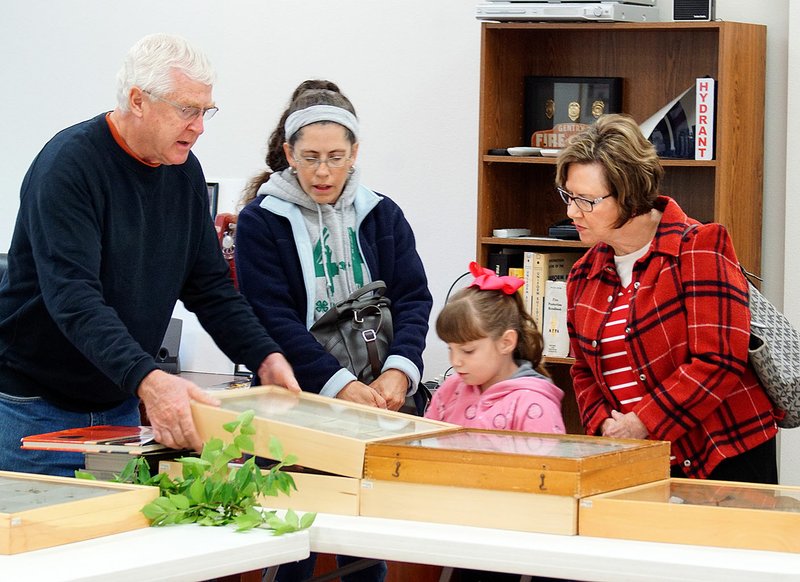GENTRY — The rains stopped just in time on Saturday morning to do a little work in the flower beds and along the trail at the Eagle Watch Nature Trail in observance of Earth Day.
In spite of the rain and the mud, close to 20 local 4-H club members and adults came out to pull weeds and plant flowers for the bees and butterflies later this spring and summer.
And following the work, those in attendance were treated to an explanation of the work of Morning Star Wildlife Rehabilitation Center near Gravette by Lynn Sciumbato, owner and rehabilitator. The center takes in injured birds and animals and nurses them back to health when possible for release into the wild. The facility is licensed by the Arkansas Game and Fish Commission and by the U.S. Fish and Wildlife Services to carry on the service.
Morning Star focuses its work on native Arkansas species, including raptors, mammals, reptiles and amphibians.
Sciumbato showed a kestrel (better known as a sparrow hawk because the birds prey on sparrows and small birds in addition to eating small rodents and insects). She also showed a barred owl, native to the woodlands of Arkansas.
University of Arkansas professor Don Steinkraus showed part of his collection of butterflies and moths and spoke about the benefits the insects provide to humans as pollinators. Without pollinators, we would not be able to produce fruits and vegetables.
He explained why planting and protecting host plants for the pollinators is important to the survival of the various species of butterflies and moths, as well as bees and other pollinators.
General News on 04/26/2017

